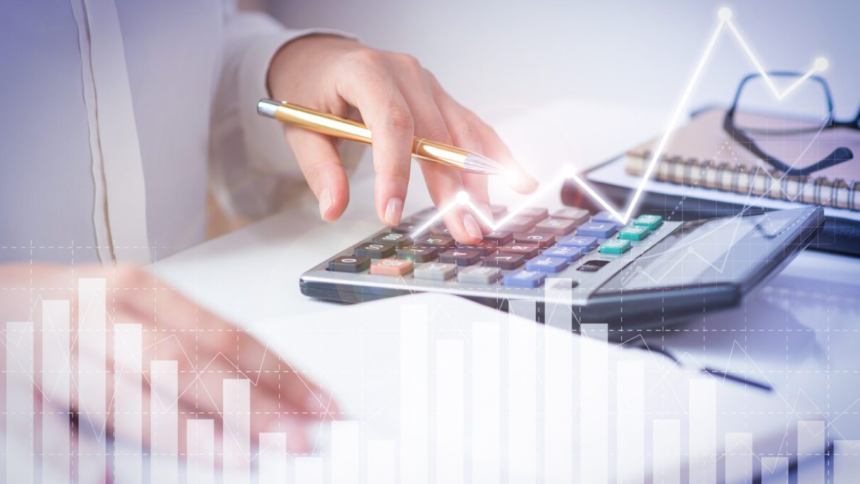Introduction
When it comes to navigating the complexities of VAT (Value Added Tax), having the right expertise on your side is crucial. In Brighton, a VAT tax accountant plays a vital role in ensuring businesses comply with regulations, optimize their tax liabilities, and avoid costly mistakes. But what exactly does it take to become a VAT tax accountant in this vibrant city? Let’s dive into the essential qualifications and skills needed for this profession.
Importance of VAT Tax Accountants
VAT tax accountants in Brighton are more than just number crunchers. They are strategic partners for businesses, helping to interpret VAT laws, manage compliance, and implement effective tax strategies. Given the ever-evolving nature of tax regulations, their expertise is invaluable for companies looking to thrive in a competitive environment.
Educational Qualifications
To kick off your journey as a VAT tax accountant, a solid educational foundation is essential. Most VAT tax accountants hold a degree in accounting, finance, or a related field. This initial step equips them with fundamental financial principles and analytical skills.
Advanced Courses and Certifications
Beyond a degree, pursuing additional courses can set you apart. Specialized courses focusing on VAT, taxation laws, and financial regulations are highly beneficial. Institutions often offer certifications that provide a deeper understanding of VAT practices, helping accountants stay ahead of the curve.
ACCA (Association of Chartered Certified Accountants)
One of the most recognized qualifications for accountants is ACCA. This qualification not only demonstrates a high level of expertise in accounting principles but also covers specific aspects of taxation, including VAT.
ACA (Institute of Chartered Accountants in England and Wales)
Another prestigious qualification is ACA, which is highly regarded in the UK. This qualification involves rigorous training and examinations, ensuring that the accountant is well-versed in all aspects of accounting and taxation.
CIMA (Chartered Institute of Management Accountants)
CIMA focuses on management accounting, which includes a thorough understanding of VAT implications for business decisions. Holding this qualification can provide a competitive edge in the accounting field.
Experience Requirements
Experience in the accounting field is crucial. Many employers look for candidates who have worked in a relevant capacity, as this practical knowledge aids in understanding the intricacies of VAT regulations.
Specialization in VAT
Having specific experience in VAT can greatly enhance an accountant’s proficiency. This specialization can be achieved through roles focused on VAT compliance, consulting, or advisory services. A VAT tax accountant must possess strong analytical skills. They need to analyze financial data and VAT reports to ensure accuracy and compliance.
Attention to Detail
With tax regulations being meticulous, a keen eye for detail is paramount. Mistakes can lead to significant financial penalties, making this skill vital for any VAT tax accountant. Being able to communicate complex tax concepts clearly is essential. VAT tax accountants often need to explain these concepts to clients who may not have a financial background.
Knowledge of VAT Regulations
Understanding current VAT regulations is non-negotiable. A VAT tax accountant in Brighton must be familiar with local laws and how they apply to different industries. Regular updates and ongoing education help maintain this knowledge base.
Continuing Professional Development
The world of VAT is constantly changing, making continuing professional development (CPD) essential. Accountants should engage in ongoing training, workshops, and seminars to stay updated on the latest regulations and practices.
Importance of Local Knowledge
Local businesses can greatly benefit from a VAT tax accountant who understands the unique economic environment of Brighton. Familiarity with local businesses, industries, and challenges can enhance the service provided. In today’s digital world, proficiency in accounting software is essential. Familiarity with programs like Sage, QuickBooks, or specialized VAT software helps streamline processes and improve efficiency.
Ethical Considerations
A VAT tax accountant must adhere to a strict ethical code. This includes maintaining client confidentiality and ensuring compliance with all legal regulations. Ethical practice builds trust and credibility with clients.
Conclusion
Becoming a VAT tax accountant in Brighton requires a combination of education, professional qualifications, and a unique skill set. With the right qualifications, experience, and commitment to ongoing learning, these professionals play a crucial role in helping businesses navigate the complexities of VAT. Whether you’re a business owner seeking assistance or a prospective accountant, understanding these qualifications is the first step toward ensuring compliance and optimizing your tax strategy.
FAQs
- What is the minimum educational requirement to become a VAT tax accountant in Brighton?
To start, a degree in accounting, finance, or a related field is typically required. - Are professional qualifications necessary for VAT tax accountants?
Yes, professional qualifications like ACCA or ACA are highly recommended as they demonstrate expertise and enhance job prospects. - How important is experience in VAT for accountants?
Experience specifically in VAT is crucial, as it ensures accountants are familiar with the nuances of VAT regulations and compliance. - Do VAT tax accountants need to know specific software?
Yes, proficiency in accounting software such as Sage or QuickBooks is essential for efficient practice. - Is continuing education necessary for VAT tax accountants?
Absolutely! Ongoing training and education are vital to stay updated on changing VAT regulations and practices.


